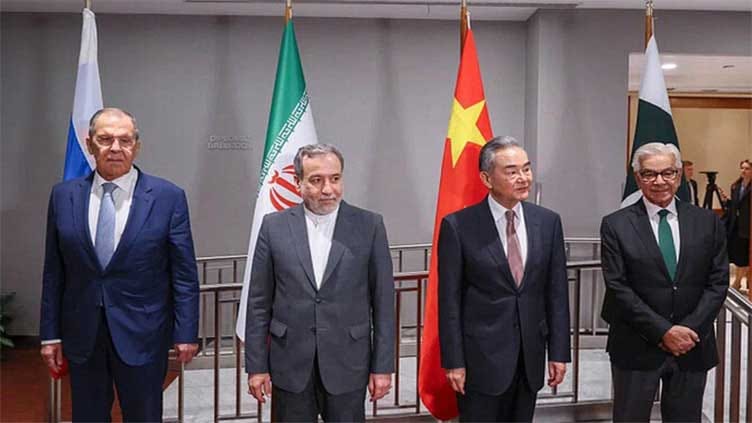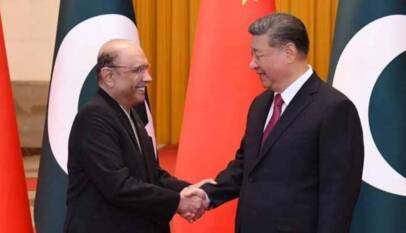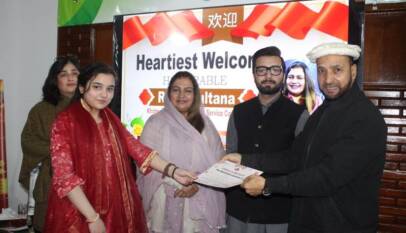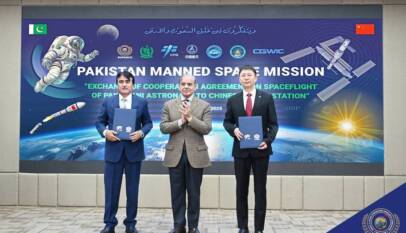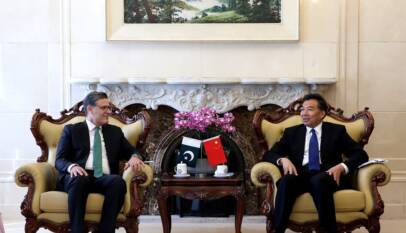Pakistan-China Alliance Strengthens as Quadrilateral Group Addresses Security Threats
Pakistan, China, Russia, and Iran held a ministerial meeting on the sidelines of the UNGA, expressing concerns over terrorist groups in Afghanistan, including Daesh and TTP, threatening regional security. The nations called for stronger counter-terrorism efforts and urged the Afghan Taliban to take concrete action. Pakistan and China reaffirmed their commitment to regional stability.
NEW YORK – In a significant development, a ministerial meeting of the Quadrilateral Group, comprising Pakistan, China, Iran, and Russia, while expressing critical concerns over the security challenges originating from Afghanistan, has that terrorist groups operating in the war-torn country are a serious threat to regional and global security. The four-nation federal ministers meeting was held here on the sidelines of the United Nations General Assembly (UNGA) session the other day, says a joint statement issued here on Sunday. Defence Minister Khawaja Asif attended the meeting on behalf of Pakistan while China, Russia and Iran were represented by their respective foreign ministers. During the meeting, the ministers said that terrorist groups such as Daesh, Al-Qaida, the Eastern Turkestan Islamic Movement (ETIM), Jaish ul-Adl, Balochistan Liberation Army (BLA), TTP and other groups based in Afghanistan, continue posing a serious threat to the regional and global security.
The meeting also condemned the recent terrorist attacks in all shapes and forms in Afghanistan and the region, including the attacks by Daesh on Karbala pilgrims on 13 September 2024 and the attacks by TTP in Bannu and Besham in Pakistan on 15 July and 26 March 2024, respectively. The minister also expressed concern over the terrorism-related security situation in Afghanistan and the region and stressed the concept of common, comprehensive, cooperative, and sustainable security, as well as the principles of equal indivisible security, examine regional security issues from a more comprehensive and integrated perspective, and work together to address various security challenges in Afghanistan and the region. The meeting also called for strengthening counter-terrorism cooperation at both bilateral and multilateral levels. “Afghanistan should be supported in taking comprehensive measures to address both the symptoms and root causes of terrorism and to eradicate terrorism at an early date.”
“They called on Afghan Taliban rulers to take visible and verifiable actions in fulfilling the international obligations and commitments made by Afghanistan to fight terrorism, dismantle, and eliminate all terrorist groups equally and non-discriminatory and prevent the use of Afghan territory against its neighbours, the region, and beyond,” the statement said. According to the statement, the meeting also reiterated their support for Afghanistan’s national sovereignty, political independence, unity, and territorial integrity. “They reaffirmed principles of international law, particularly non-interference in its internal affairs, and the right of the Afghan people to independently decide the future of their country in accordance with the principles and purposes of the United Nations Charter,” it added.
The ministers stressed that all members of the international community have a shared interest in a stable and peaceful Afghanistan, “a country that should serve as a platform for international cooperation rather than geopolitical competition.” Furthermore, the countries urged Afghan rulers to create conditions that facilitate the return of Afghan refugees to their homeland, prevent further migration, and take serious measures to ensure returnees’ livelihoods and reintegration into political and social processes to achieve a lasting solution.
Chinese company, NEVs begins vehicles’ deliveries in Pakistan’s major cities
China’s BYD, a global leader in New Energy Vehicles (NEVs), and Pakistan’s Mega Motor Comp…



